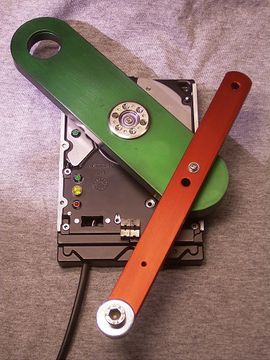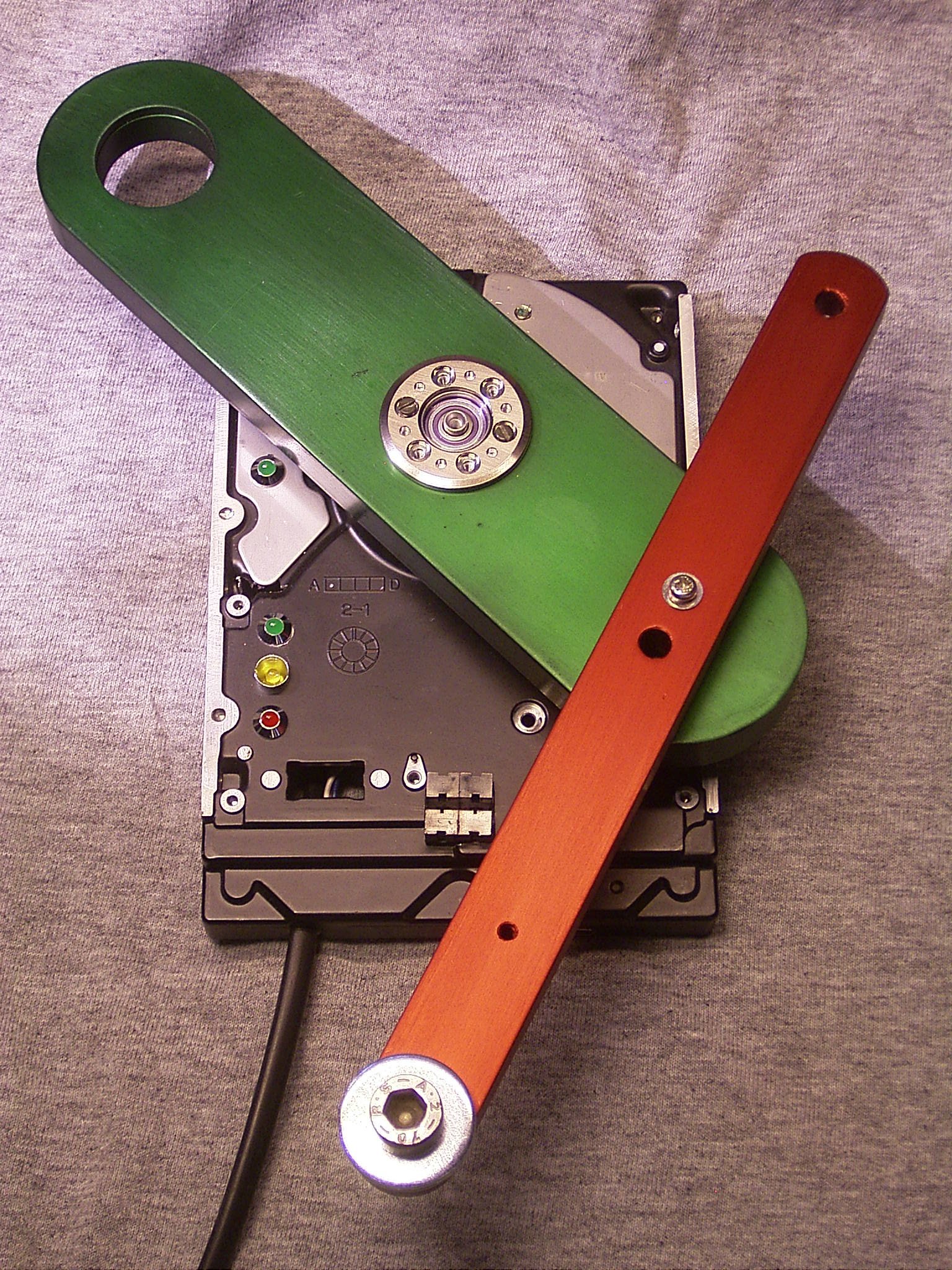| Regel 22: | Regel 22: | ||
De aandrijving wordt bestuurd door een Arduino Nano. | De aandrijving wordt bestuurd door een Arduino Nano. | ||
| − | Zie http:// | + | Zie http://www.JanBeeProjects.nl/ChaosSlinger/ChaosSlingerNL.htm voor uitgebreide informatie, video's, elektrisch schema en software. |
'''[EN]'''<br> | '''[EN]'''<br> | ||
| Regel 37: | Regel 37: | ||
The electrical drive is controlled by an Arduino Nano. | The electrical drive is controlled by an Arduino Nano. | ||
| − | See http:// | + | See http://www.JanBeeProjects.nl/ChaosSlinger/ChaosPendulumEN.htm for more information, including videos, electronic diagram and software. |
Versie van 11 aug 2019 12:22
| Project: Chaos Slinger | |
|---|---|
| Naam | Chaos Slinger |
| Door | JanBee |
| Status | Afgerond |
| Madskillz | Elektronica, metaalbewerking, Arduino programmeren |
| Doel / Omschrijving | |
| De z.g. dubbele slinger gedraagt zich chaotisch | |
| Alle Projecten - Project Toevoegen | |
Chaos Slinger Chaos Pendulum
[NL]
Een gewone enkelvoudige slinger vertoont een zeer regelmatig gedrag, we gebruiken 'm in veel mechanische klokken voor behoorlijk nauwkeurige tijdmeting.
Als je een tweede slinger aan het gewicht van een eerste bevestigt krijg je een chaos systeem.
Het gedrag van zo'n systeem is extreem afhankelijk van de begin conditie en -aangezien elk moment beschouwd kan worden als de beginconditie voor wat er gaat volgen- zal het systeem chaotisch blijven.
Het chaotische gedrag komt voort uit de energie uitwisseling tussen de hoofdslinger en de nevenslinger, niet uit de een of andere vorm van ruis of andere toevalsfactor.
Deze slinger wordt elektrisch aangedreven om de wrijvingsverliezen te compenseren, maar zo dat er geen chaos bevorderd wordt. De hoofdslinger krijgt elke keer dat 'ie het laagste punt passeert een zet in de goede richting. De tweede slinger heeft geen eigen aandrijving.
Deze slinger is opgebouwd uit enkele onderdelen van een gesloopte harddisk, zoals de disk-motor en het lager van de koppen-arm. En er was wat draai- en freeswerk nodig aan stukken aluminium die ik toevallig had liggen.
De aandrijving wordt bestuurd door een Arduino Nano.
Zie http://www.JanBeeProjects.nl/ChaosSlinger/ChaosSlingerNL.htm voor uitgebreide informatie, video's, elektrisch schema en software.
[EN]
An ordinary single pendulum shows a very regular behaviour, we use it in many mechanical clocks for pretty good timekeeping.
If you mount a second pendulum on the weight of a first you will have a chaos system.
The behaviour of such a system is extremely dependent on the starting condition and -as any moment can be regarded as the starting condition for what follows- the system will continue to be chaotic.
The chaotic behaviour comes from the energy exchange between the main- and the second pendulum, not from any kind of random noise or the like.
This pendulum is electrically driven to compensate for the friction losses, but in such a way that chaos is not promoted. The main pendulum gets a push in the right direction every time it passes the lowest point of its orbit. The second pendulum has no drive of its own.
This pendulum is built from some parts from a dismantled harddisk, the case, the disk-motor and the bearing of the head lever. And it took some machining of pieces aluminium I happened to have in stock.
The electrical drive is controlled by an Arduino Nano.
See http://www.JanBeeProjects.nl/ChaosSlinger/ChaosPendulumEN.htm for more information, including videos, electronic diagram and software.

